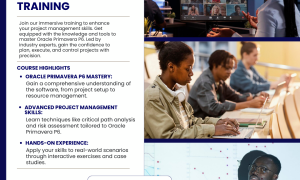
The 1 Financial Mistake Young Professionals Make
Starting your career is exciting. Indeed, your first paycheck feels like freedom, possibilities seem endless, and you finally get to enjoy the rewards of your hard work. However, in the middle of the excitement, many young professionals fall into one major trap that ultimately could cost them years of financial security.
So, what is this costly mistake?
👉 Living without a clear financial plan.
Budgeting is the foundation of financial security. Additionally, it allows you to clearly see where your money goes each month. Investing early can seem intimidating. However, starting small allows you to learn while your money grows. Many young professionals ignore retirement savings. As a result, they miss out on decades of compound growth. Poor money management can lead to financial stress. For example, overspending on credit cards can cause long-term debt. First, create a simple budget. Next, set aside an emergency fund before increasing your lifestyle spending. In fact, even small investments made early can grow into a significant portfolio over time.
Why This Mistake is So Common
“If you fail to plan your finances, you’re planning to fail financially.”
Benjamin Franklin
For many young earners, the sudden increase in income after school or entry-level jobs leads to lifestyle inflation — buying more expensive things simply because they can. Without a budget or long-term financial strategy, it’s easy to fall into unhealthy habits. For instance, you might:
- Spend without tracking
- Overuse credit cards
- Ignore savings or investments
- Delay debt repayment
Initially, it doesn’t feel dangerous. Nevertheless, over time these habits inevitably snowball into debt.
The Long-Term Impact
- Debt Accumulation: Credit card debt builds up fast. It can take years to repay.
- Missed Investment Growth: Money not invested early loses the power of compound interest.
- Emergency Vulnerability: Without savings, unexpected expenses create financial crises.

How to Avoid This Mistake This Financial Mistake
The solution isn’t to stop spending altogether. Rather, it’s to create a financial roadmap you can stick to.
- Track Your Income and Expenses
Use apps like Mint, YNAB, or a simple spreadsheet to see where your money goes. - Follow the 50/30/20 Rule
- 50% for needs (rent, bills, groceries)
- 30% for wants (entertainment, hobbies)
- 20% for savings & debt repayment
- Start Investing Early
Even small amounts in mutual funds, ETFs, or retirement accounts grow significantly over time. - Build an Emergency Fund
Aim for at least 3–6 months’ worth of living expenses.

Case Study:
Ada, 26, started earning $195/month at her first corporate job. Without a budget, she spent freely for two years, leaving her with $325 in credit card debt and no savings. After working with a financial coach, she learned to track expenses, start investing, and build her emergency fund — within 18 months, she became debt-free and had $780 in investments.
Key Takeaway
The #1 financial mistake young professionals make is spending without a plan. Importantly, avoiding this mistake is less about sacrifice and more about strategy. In fact, the sooner you take control of your money, the sooner it can start working for you.
- The Proven Strategy Behind Smarter, More Confident Financial Planning
- FIRE Movement 101: Can You Really Retire Early?
- How Delaying Your Retirement Savings Can Cost You Big
- Think Your Government Pension Is Enough? Here’s Why It’s Risky
- Retirement Planning: How to Win Big in Your 20s—and Catch Up in Your 40s
💬 What’s your biggest money challenge right now? Share in the comments — we might feature your question in our next blog post.





